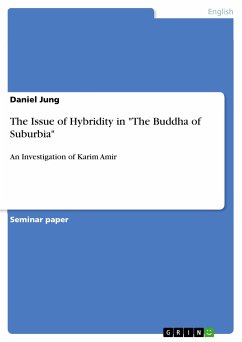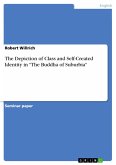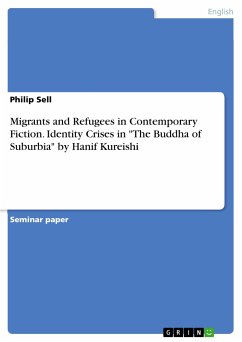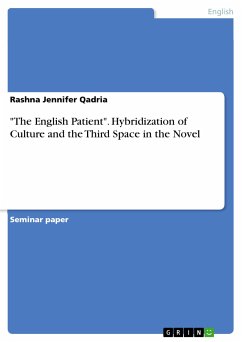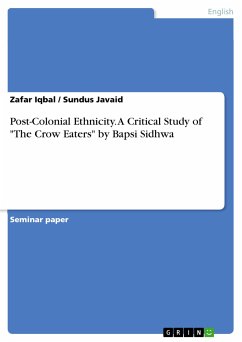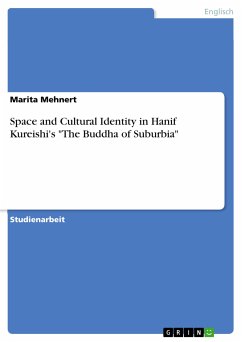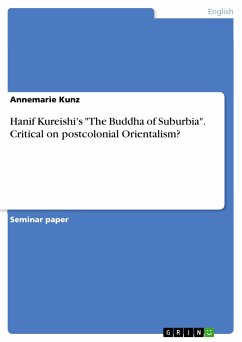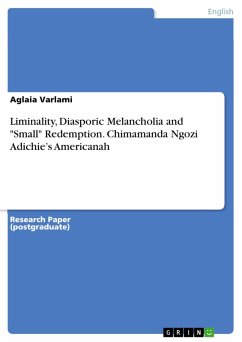Seminar paper from the year 2019 in the subject English Language and Literature Studies - Literature, grade: 2,0, University of Cologne (Englisches Seminar I), course: Stories of Migration, language: English, abstract: This paper examines how Kureishi depicts the matter of growing up in a (Western) society having a multicultural background in his novel "The Buddha of Suburbia". The analysis will focus on the main character of Karim. The method of practical criticism will be applied and furthermore the author will rely on pertinent secondary literature. Based on selected motives and scenes concerning the protagonist, it will be explored how the novelist broaches the issue of hybridity in his story. Therefore, it will be refered to relevant postcolonial theories dealing with the subject of colonization and identity. The theorists to be mainly drawn on will be Homi K. Bhabha, Edward Said, and Stuart Hall. To fully understand Kureishi's main figure it is crucial to consider England's historical background in the 1970s. Set in times of change and immigration the novel requires to take these then tense social conditions into account. Hence, the following lead questions will guide this analysis: How and where does Kureishi show the issue of hybridity through his main character Karim? By merely reading the books¿ title, one gets a sense of the novel¿s main theme. The connotation of each of the two subjects already creates an atmosphere of two different and yet cohesive aspects. While Buddha (from a European point of view) stands for something being far away, strange, exotic, the term suburbia reminds of something that is around the corner, familiar, comforting. Thus, already the title hints at one of the main themes The Buddha of Suburbia deals with. It is a subject the Western world is heavily confronted with these days: Who am I? Where do I come from? And followed by the inevitable subsequent question: Where do I belong? Obviously, this question is mainly asked by people with at least two cultural backgrounds. In 1990 Hanif Kureishi looked into this subject in his aforementioned novel. Born in 1954 in London, the author himself grew up as son of an English mother and a Pakistani father.
Dieser Download kann aus rechtlichen Gründen nur mit Rechnungsadresse in A, B, BG, CY, CZ, D, DK, EW, E, FIN, F, GR, HR, H, IRL, I, LT, L, LR, M, NL, PL, P, R, S, SLO, SK ausgeliefert werden.

